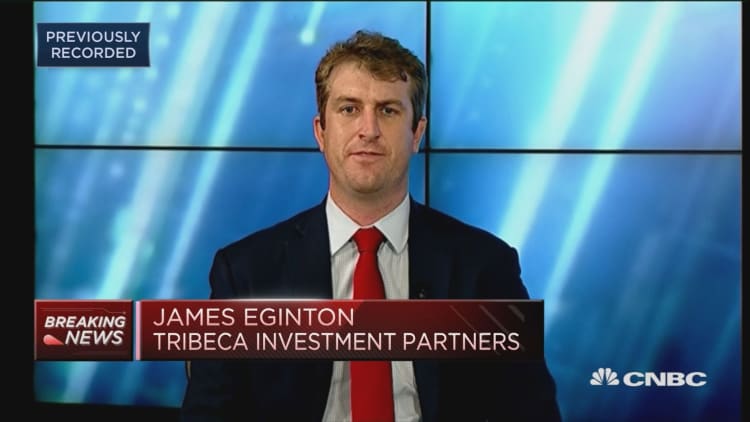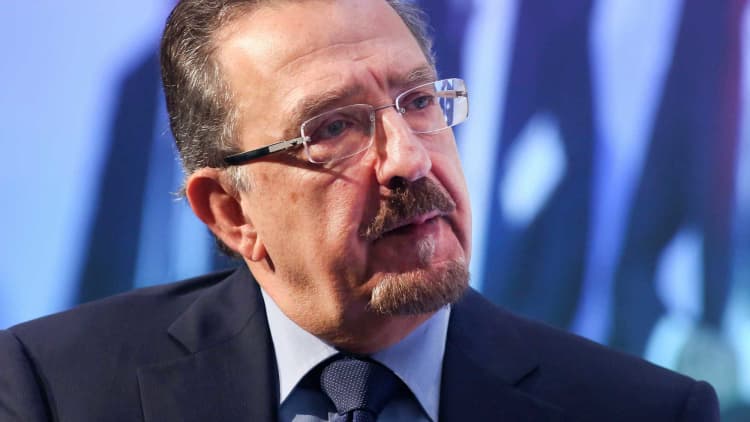Saudi Aramco shares opened at their lowest point since the state-run oil company's market debut on December 11.
On Wednesday, shares began trading on the Saudi Tadawul stock exchange at 34 riyals ($9.06), down 12% from their peak of 38.70 riyals — which puts the stock into technical correction territory. Saudi stocks more broadly were down almost 1% by mid-morning, slightly paring earlier losses.
The moves came after Iran launched more than a dozen ballistic missiles against military bases housing U.S. troops in Iraq overnight, as part of Tehran's response to the U.S. killing of top Iranian military commander Qasem Soleimani last week. The world's most highly valued company fell 1.7% Sunday and as much as 1.2% Monday and has now seen its market value fall by around $200 billion since its peak.
Aramco's stock is still hovering slightly higher than its initial trading price of 32 riyals, which valued the company at $1.7 trillion, making it the largest public company in the world. Aramco's market cap climbed to $2 trillion on its second day of trading on December 12. Its total value on Wednesday was closer to $1.8 trillion due to the recent slump.
The oil behemoth's listing was part of Crown Prince Mohammed bin Salman's Vision 2030 program aimed at transforming the Saudi economy.
Escalating tensions in the Middle East have sent oil prices surging, with Brent crude trading up a further 1.1% at $69 per barrel on Wednesday morning, while U.S. West Texas Intermediate (WTI) was up 0.8% at $63.2 a barrel.

Shares of oil companies in Europe have posted gains since Soleimani's death amid fears of disruption to Middle Eastern oil supplies.
In September, two Saudi Aramco oil facilities in Abqaiq and Khurais were severely damaged by drone strikes, with Riyadh suggesting Iranian culpability, which also sent oil prices soaring.
James Eginton, analyst at Tribeca Investment Partners, told CNBC Wednesday that the market was not yet pricing in a risk of new attacks on Aramco facilities, which are responsible for a "massive proportion" of the world's oil supply, and was instead treating current tensions as a "cold war type situation" in which neither Iran nor the U.S. wishes to engage in a full-scale military conflict.
However, he suggested that a more likely cause of oil supply disruption would be for Iran, rather than sending missiles toward Aramco production sites, to shut down the Strait of Hormuz.
"If the Iranians want to disrupt oil supply, they will shut down that Strait straight away and that will send oil prices through the roof, and that will trigger a response not only from the Saudis, but will have to trigger a response from the U.S.," Eginton said.


